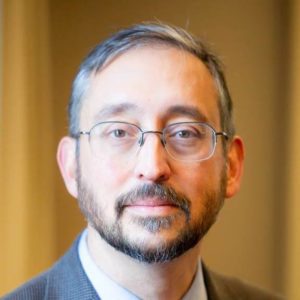COVID’s Impact On The Flow Of Counterfeits
In more than two years since the start of the COVID-19 pandemic, counterfeit masks, medicines, and vaccines have popped up all over the country and are increasingly accessible online. By now, the recognizable pattern is that when something becomes unavailable or difficult to find in the U.S. market, bad actors will step in to provide substandard or adulterated products for a profit. In the interview below, hear from PSM Executive Director Shabbir Safdar about the growing dangers of counterfeits and how the United States can protect the security of our medicine supply chain.

Q: You've been closely monitoring counterfeit activity since the start of the pandemic. Can you provide an update on what's changed over the past two years?
Shabbir: Counterfeit medicines and medical supplies have always been a challenge for law enforcement at the local, state, and national levels, but we’ve seen increasing counterfeit medicine and device activity throughout the pandemic. Bad actors acting from within the U.S. but also beyond our borders are putting Americans in harm’s way by selling fake products – often over the Internet.
Every single day, hundreds of pounds of fake pills and devices such as test kits are mailed into the U.S. by criminals abroad. Most of the time they are un-prosecutable. Even if you’re able to find out who sent the package, you still must get a foreign country’s law enforcement to make investigating them a priority.
Practically, these criminals operate mostly without fear of punishment because they operate from beyond U.S. borders.
Q: Why are we seeing an uptick of counterfeit crime because of COVID?
Shabbir: COVID caused global shortages and strains on enforcement and monitoring. What we know from shortages is that criminals ALWAYS fill the vacuum. So when there was a shortage of N95 masks, there was always a criminal ready to sell you N95’s that are supposedly hard to get.
They have them because they're counterfeit, but the average person doesn’t know that. The criminals have become better and better at faking their products and the sites where they are sold.
Fake hospital gloves, masks, surgery gowns, COVID tests, and even vaccines have all been trafficked during the pandemic.
The lesson we’ve learned is that it’s dangerous to buy medical products on the global market from un-prosecutable vendors.
Q: We've heard that America has the safest drug supply in the world. What would you say are the greatest vulnerabilities when it comes to counterfeit medicines reaching consumers?
Shabbir: We do have the safest drug supply because we have a closed system with serial number traceability that has rigorous inspections. Most of the supply chain is here in the U.S. and is easily prosecutable – meaning that when bad actors do something sketchy, it’s easier for the authorities to detect and law enforcement doesn’t have to engage another country to get you into U.S. court to answer for your crime.
The danger is when we open our system up to foreign participants that aren’t subject to the same track and trace mechanisms, and we can’t easily hold them to account for their wrongdoing. A great example of this is the foreign wholesalers who sold fake cancer medication Avastin to American physicians a few years ago. One of the ringleaders of that criminal gang could not be extradited, even though he was just over the border in Canada, a friendly neighbor.
Q: What can be done to prevent future incidents and strengthen our drug supply?
Shabbir: As opposed to ten years ago, we now have multiple federal agencies doing great prosecutions of counterfeiters, including the Food and Drug Administration, Office of Criminal Investigations, Homeland Security Investigations, Customs and Border Protection, the Drug Enforcement Agency, Immigration and Customs Enforcement, and even the Postal Service.
Their work is challenging. We need to keep our supply chain tight, be mindful of not allowing un-prosecutable foreign entities into it, and make sure these agencies have the support they need to do a difficult job.
Q: How does this issue impact local communities? Also, who is most impacted?
Shabbir: In the case of fake Avastin, cancer patients were administered the counterfeit medicine. Their families wondered how much time they lost with their loved ones due to an adulterated treatment.
Fake medicine can literally rob you of life. And because much of the evidence is consumed when you take it, it’s very difficult to prosecute.
Q: Based on what you know about importation proposals, are you concerned Americans could be exposed to counterfeits?
Shabbir: The pandemic counterfeit problem has taught us that when you try and buy something from foreign providers that isn’t readily available, you get counterfeits. Buying drugs from foreign countries when they’re hard to get could carry a similar risk to buying N95 masks from a foreign vendor during a shortage.